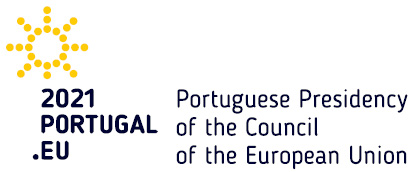The concept of consumer protection as a right for every citizen is still not yet fully embedded in Serbian society. Several steps have been taken to change the situation in the last decade, most notably in 2005, when Serbia adopted its first consumer protection law. However, a meaningful legal infrastructure for consumer protection was only effectively put in place in the country in 2010, when a new Law on Consumer Protection was adopted.
Browsing: Success Stories
Primary education in Serbia is both compulsory and free. Drop-out rates for young children, though, remain relatively high. In 2008, it was estimated by the Serbian government that 5% of pupils dropped out of elementary school, which represents about 80,000 children. Drop-out rates were higher among children from vulnerable groups, such as Roma and children with disabilities, and almost 19% of children living in rural areas were not enrolled in elementary school at all.
Raška is a small town in South West Serbia. The area, along with South Serbia, is one of the country’s poorest regions. Finding employment is difficult – and for anyone with a disability, it can seem an almost impossible challenge. A poor public perception of disability means that local employers generally overlook the needs and skills of people with disability, favouring those who are fully-abled.
Drug abuse is a problem among young people across Europe. This situation is exacerbated in Serbia by the country’s situation on the Balkan ‘drugs road’ between the Middle East and Western Europe, giving its population far greater access to drugs. Reports from the World Health Organization indicate that countries undergoing profound socio-economic changes, such as Serbia, experience greater demand for drugs by all those who feel excluded from the process or unable to cope with the changes. In Serbia, there has been a noted increase in the number of types of drugs available on the market and the age limit for drug use is extending in both directions, but especially toward younger age groups.
Jovica Stojković is a farmer from Navalin near Leskovac, South Serbia. According to Stojković, the climate in his region is better than in the Netherlands: “We have more sunny days, better-tasting fruit, cheaper labour, but so far we haven’t had a vision and the people on site who can network on behalf of producers.” However, life for this farmer and many others on the 40,000 farms producing red peppers, potatoes, cabbage, tomatoes, berries and pears in the area is all set to change.

Serbia’s capital Belgrade has slightly changed its tune when it comes to celebrating the New Year. Instead of ringing in just one new year, it has now taken to honouring several. Between September 2011 and January 2012, the Jewish, Islamic, Catholic, Orthodox and Chinese New Year were all marked by the Belgrade Philharmonic with a special concert highlighting the rich contribution made to society by each of these great cultures. The New Years’ Concerts programme is now a permanent feature of the Belgrade Philharmonic’s repertoire.
Community-based services for disadvantaged groups are still in relatively short supply in Serbia. Despite significant progress in the last decade to decentralise social welfare, including a large-scale reform of social work centres, the development of a regulatory framework and the transformation of residential institutions, the provision of integrated social services has yet to take root. Those who suffer most from this situation are the vulnerable, in particular, the elderly, people with disabilities, the unemployed and refugees and internally displaced people, of which there an estimated 300,000 living in Serbia, following the conflicts in the former Yugoslavia in the 1990s.

Annually, some 5,000 tons of waste is accumulated in healthcare institutions in Serbia, of which one- fifth is hazardous waste. The introduction of infectious medical waste management system is very important for the improvement of public health and health care quality.

The number of cases of rabies in wild animals Serbia fell in 2011 by 80 percent compared to 2009 and in 2012 only 13 cases of infection were registered as a result of assistance from the European Union.

Clinical centres in Serbia received through the Screening project some 30 machines to carry out mammographs, nine for colonoscopies (a microscope delivery is also planned) as well as computer equipment for 15 cytology centres. With staff trained in screening area for all three malignant diseases, the opportunity for health improvements in these areas in in Serbia is secured – a main goal of the Project.



